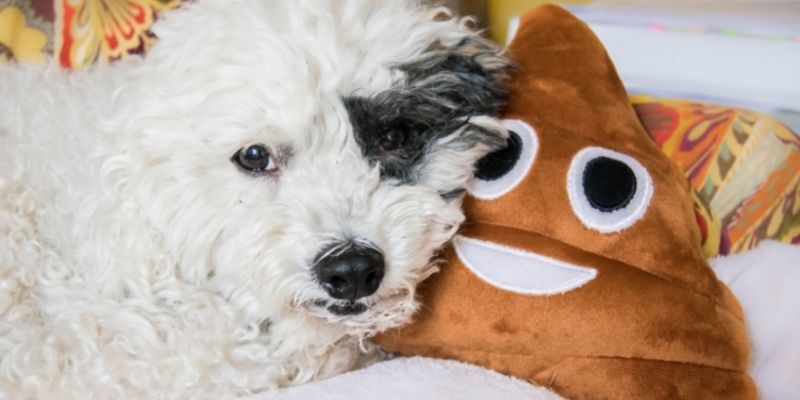Even the most well-behaved dog can go to the bathroom in the house from time to time. If this occurs more frequently than usual, your pet may have a problem. Illness, aging, and emotional concerns could all play a role. However, you should explore these factors only if you are confident that your dog is housetrained in your home.
If you adopt an older, housetrained dog, it may have accidents at first. Among a few reasons are stress, a new schedule, and lack of training.
When your new pet becomes adjusted to the family routine, the problem should go away in a few weeks.
It’s possible that your dog isn’t well-trained. Whether you have an older dog or a puppy, you must train them to relieve themselves outside. Set a routine, keep an eye on your dog as much as possible, and have someone take them out if you’re going to be gone.
When your adult dog starts pooping indoors out of nowhere, it’s time to look into possible explanations.
Do you have a specific question about fixing dog pooping in the house issue? Then use the table of contents below to jump to the most relevant section. And you can always go back by clicking on the black arrow in the right bottom corner of the page. Also, please note that some of the links in this article may be affiliate links. For more details, check the Disclosure section at the bottom of the page.
Here's what we'll cover:
Past Accidents That Weren’t Thoroughly Cleaned Up
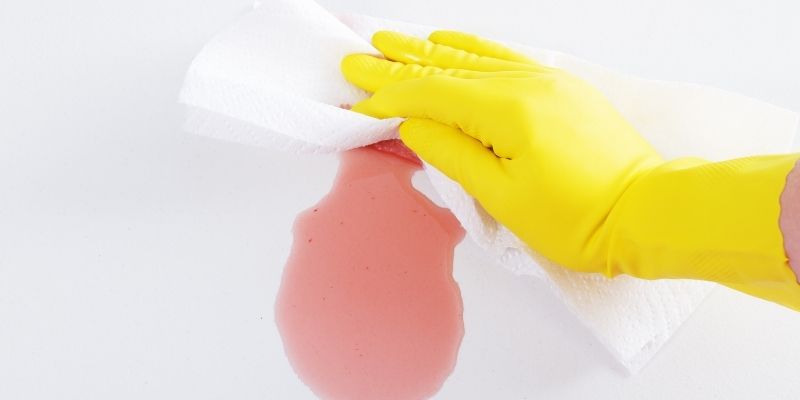
Dogs have a natural instinct to relieve themselves where they have previously relieved themselves. So if your pup can smell her urine or excrement, she will recognize the spot as a suitable toilet location and relieve herself there again.
Spray the dirty area with distilled white vinegar to remove the odor of dog poop. If necessary, use a commercial dog stain and odor remover. , on the other hand, is a fantastic product known for eradicating odors through the use of enzymes.
Medical Reasons
You should probably start with a call to your veterinarian, especially if your dog has loose stools or diarrhea. When their stomach, small or large intestines are inflamed, this could be an indication of gastroenteritis. Among the possible causes are:
- Roundworms, hookworms, and giardia are examples of parasites.
- A food allergy or intolerance
- Bacteria
- Viruses
- IBD (Irritable Bowel Disease)
- Cancer of the bowel
There could be other medical reasons why your dog urinates indoors. That’s why it’s never a bad idea to rule out these possibilities initially.
Overstimulation During Potty Time
The problem of a dog peeing or pooping after coming inside may be caused by the surroundings outside the house in many circumstances. The specified pee place may be too interesting or distracting for the dog.
Have you ever felt an urgent want to go only after inserting the keys and turning the doorknob after being out shopping with friends? Dogs and cats can be similar.
Make it a habit for your dog to go potty as soon as he steps outdoors before playing. When you send your dog out to potty, avoid chatting and interacting with him; instead, let him concentrate on sniffing about. If you’re going to play in the yard with your dog, wait until he’s gone potty before you start. Take your puppy or dog out while it’s calm if possible. Wait for the neighbors to go inside if he becomes distracted by them.
Allow your puppy to return inside only after he has gone potty. Once he’s gone pee, quietly praise (but don’t interrupt) and treat him, and then let him play and explore in the yard before returning inside.
Allow your dog to go potty before allowing him to play.
Poor Diet
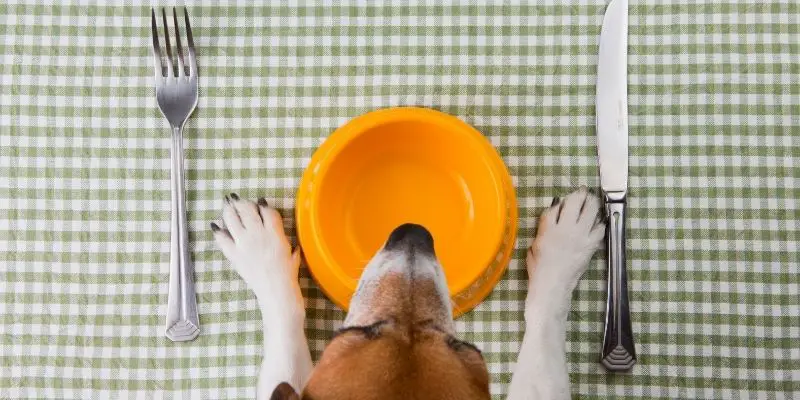
Feeding your dog inexpensive supermarket food may result in more frequent and larger bowel motions. As a result, while more expensive, premium dog food is preferable since more nutrients are absorbed, and less waste is created. This causes smaller stools and less frequent urination.
Sudden dietary changes can also induce stomach irritation and a sensation of urgency, especially if you’ve moved to a lower-quality food with a lot of fillers and grains.
Dogs appreciate real food, and if you have the time to make it yourself, healthy, vet-approved homemade dog food recipes are a terrific way to go.
If you use kibble, make sure you read the labels to learn how to choose high-quality dog foods. As a general rule, use natural, organic brands whenever possible. Fillers, meat or fish by-products, animal fat, liver meal, BHA, BHT, and other chemicals and additives are common in commercial brands. Keep your distance from these!
Aging
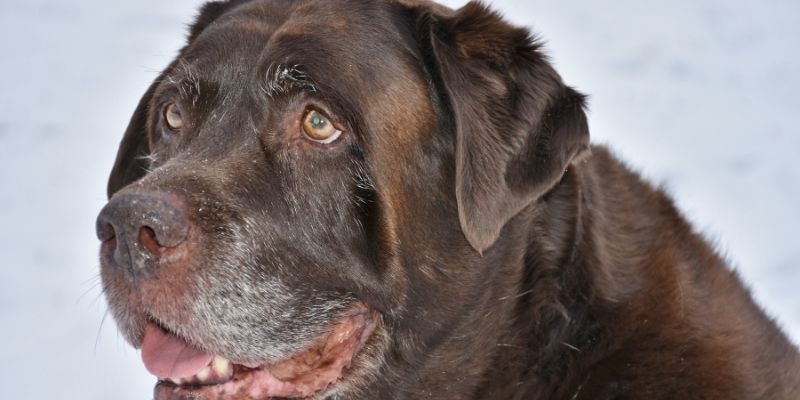
Have you noticed that your dog poops more in the house as they age? You’re not alone. Fecal incontinence, or a lack of bowel control, is common in older dogs. This is why:
They are no longer able to “hold it” as they once did. They may need to use the restroom more frequently as they get older. They may also lose strength in the muscles responsible for keeping excrement inside their bodies.
They forgot to leave. Canine cognitive dysfunction is a problem that your senior dog may have. It’s similar to Alzheimer’s disease in humans.
Signs of cognitive impairment showed a prevalence of 22.5% in older dogs. They might forget what they’re supposed to do on walks, then come inside and poop. Discuss treatment alternatives with your veterinarian or a pet therapist.
Fear
If your dog is afraid of anything in the yard or something he encounters on walks, he may be unable to relieve himself. Maybe there are too many noises, or perhaps other dogs and people make him nervous. When dogs aren’t feeling well, they tend to hold it in until they feel better. When a dog has crossed the boundary, going potty is the last thing on their mind because they may be fearful for their life.
Dogs who live in yards surrounded by invisible fences, sometimes known as electric fences, may become so afraid of the shock that they are afraid to go outside near the perimeters. In these circumstances, they simply remain on the porch with worried expressions on their face. These canines are frequently referred to as “porch sitters.”
Separation Anxiety
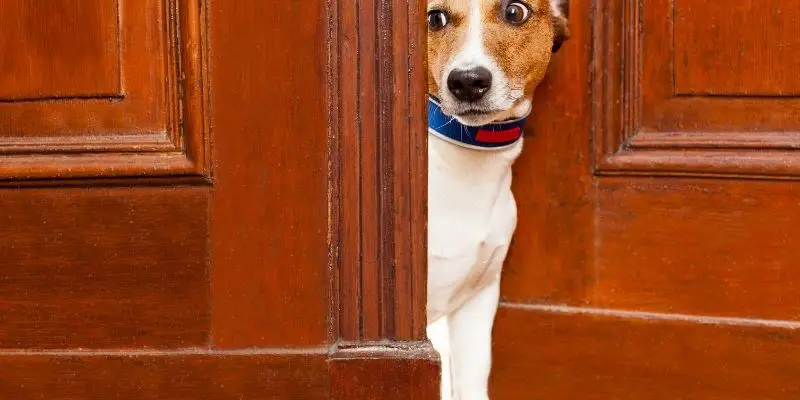
If your dog becomes anxious when you leave the house, he or she may be suffering from separation anxiety. All signs are scratching at doors and windows, destructive gnawing, howling or whimpering, and going potty inside the house.
The reasons for this terrified response vary between dogs. Some people aren’t accustomed to being alone. Others are unable to adjust to a change in routine. Whatever the source, there are things you can take to alleviate the situation:
- Don’t make a fuss about leaving or returning home.
- Consult your veterinarian regarding over-the-counter sedatives.
- Inquire with your veterinarian about prescription anti-anxiety medications.
- To limit destruction, confine your dog to a room with windows and toys.
- Leave some recently used garments for your dog. Your scent has the potential to be comforting.
Loud Noises
When dogs are scared, they frequently urinate or poop in the house. Loud noises, such as thunderclaps or the boom and crackle of pyrotechnics, are widespread triggers. While you can’t control the noises outside, you can teach your dog to be calmer when hearing loud noises.
Make a cheerful and safe environment. A safe area for dogs is usually dark and compact. It may be a closet, a crate, or even the space under your bed. When loud noises occur, encourage (but do not compel) your dog to go there. Provide snacks or other forms of remuneration to link the location with happy things rather than frightening sounds.
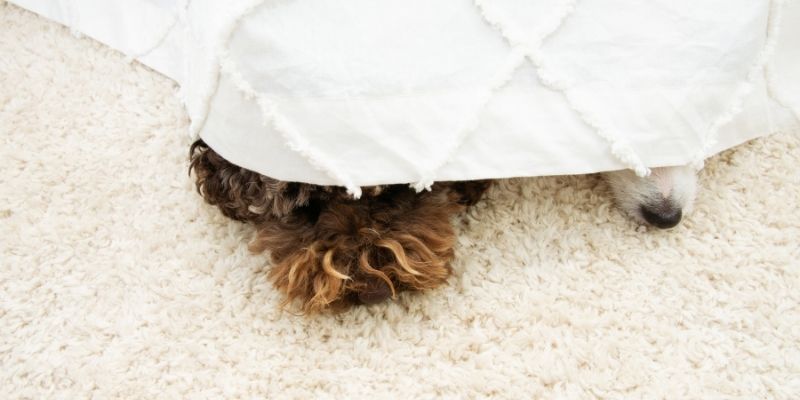
Create distractions. Give your dog something interesting to do as soon as he shows signs of worry from loud noises. Fetch with a tennis ball, introduce a new squeaky toy, or practice instructions with goodies. Don’t expect to be able to eliminate all of their concerns on the first try. The goal should be to postpone scared behavior for a longer time each time.
Don’t worry if these issues and solutions do not apply to your dog. Once your veterinarian has ruled out any medical causes for dog poop indoors, a dog behavior specialist can assist you in determining the source of the problem and resolving it.
Recent Changes Like New Pets or Family Members
Anything stressful introduced into a dog’s environment may result in a relapse in house training. It is not uncommon for a well-trained dog to have an accident in a new home shortly after relocating. A dog may also feel distressed if a new dog is introduced into the home or visitors or a new infant.
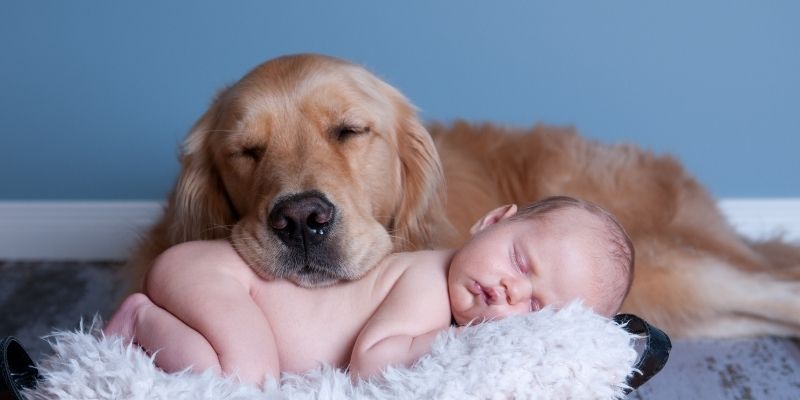
Scolding the dog for these mishaps will simply increase the dog’s uneasiness. After introducing something new, it is helpful to establish a routine. Feed your dog at regular intervals throughout the day, and take him outside to potty before or after each meal. He’ll become acclimated to the routine, and the mishaps will stop.
Also, give your dog some time to acclimatize to the changes. During changes, pheromone plug-ins, Bach flowers, and other relaxing aids can be beneficial.
Dogs can only put up with it for so long. Accidents are unavoidable if you leave kids alone for extended periods.
Keep Emotions in Check
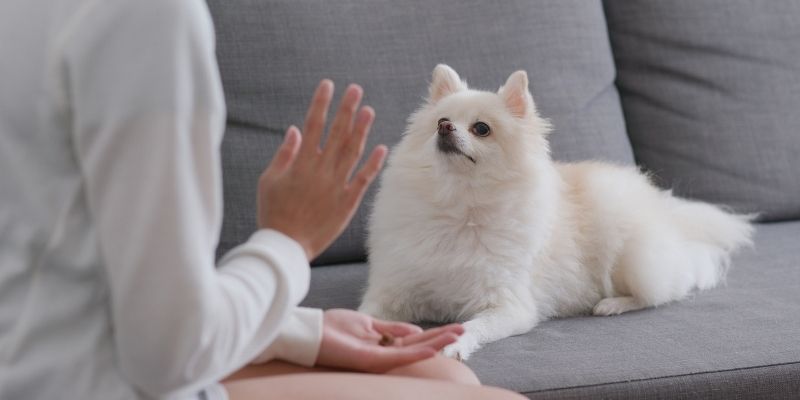
Dealing with a dog peeing and pooping in the house is aggravating — especially if it’s an older dog you believed was housetrained — but patience is required.
Reacting negatively indicates that she is still attracting attention. The pup understands why you are irritated, but expressing your feelings about it can either reinforce her or generate extra fear, leading to this happening more frequently.
According to American Humane, you should never punish a dog for an accident by wiping its snout in pee or excrement. This will simply instill terror. Instead, go for a lengthy walk to encourage bowel motions and avoid rushing the process – even if it’s 1 a.m.
Prevention of Pooping in the House
You can help prevent house soiling during training or re-training by developing and sticking to your dog’s feeding and walking plan. You should also treat your dog when he eliminates at the appropriate time and location. If your dog has an inside accident, do not chastise him. Instead, move the excrement to its right location and have him check it. Throwing away waste may seem obvious, but developing a chemical and fragrance linkage can help him remember where the right place to poop is.
Furthermore, always thoroughly clean the area where your dog has inadvertently soiled. Because your dog will want to return to this same area in the future owing to a chemical association. This is best accomplished with an enzymatic cleaning.
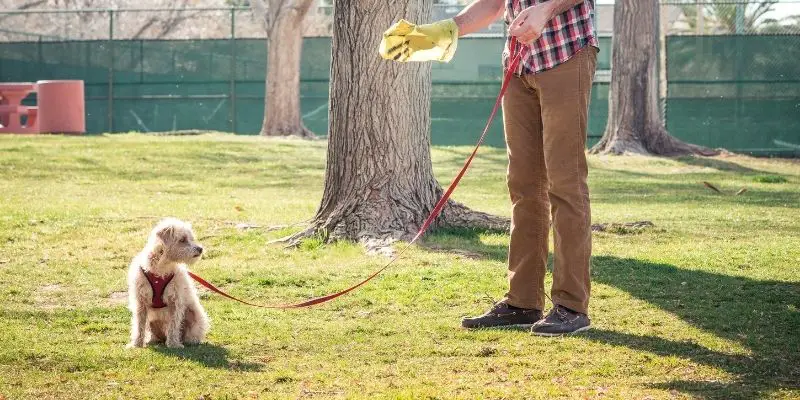
Suppose your dog’s elimination problems are caused by a medical condition. In that case, you can offer the pup less food at more frequent intervals to reduce the volume of waste. Feed an easily digestible food and avoid snacks and table scraps. Getting to the bottom of your dog’s medical problem will also determine future attempts to keep him healthy. If you cannot take your dog on more normal walks, you can hire a pet sitter to assist with regular walks and feeding.
Thanks for the blog graphics: Canva.com

Thanks for the blog graphics: Canva.com
Doghint.com is a participant of several affiliate programs. The list includes (but not limited to) the following: VigLink, Refersion, ShareASale, and Amazon Services LLC Associates Program, an affiliate advertising program designed to provide a mean for us to earn fees by linking to Amazon.com and affiliated sites. Doghint.com does not intend to provide veterinary advice. All published articles are meant for informational purposes only and not substitute the professional veterinary consultation.

